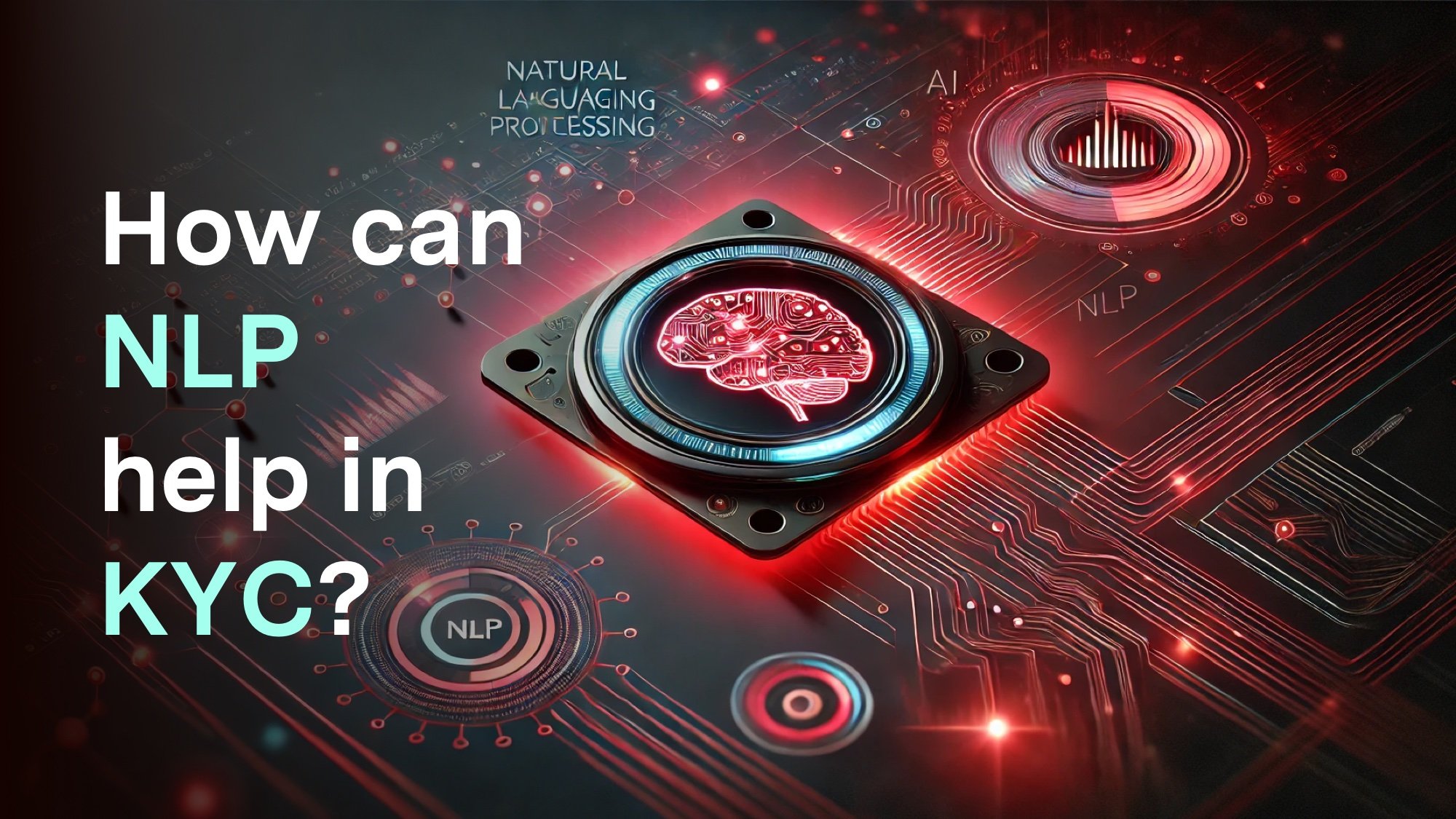How can NLP help with KYC?
As the financial world keeps changing, the demand for powerful, proactive, and precise Know Your Customer (KYC) processes has never been more critical. Natural Language Processing (NLP) is quickly emerging as a transformative technology in this space, enabling organisations to go beyond conventional data analysis and uncover hidden risks embedded in large pools of unstructured data.
With deeper insights, continuous monitoring, and more refined risk scoring, NLP strengthens not just regulatory compliance but also the efficiency of KYC operations.
Overcoming Challenges of Traditional KYC
Modern financial organisations have a growing responsibility to identify high-risk individuals, ensure compliance, and mitigate fraud. However, traditional KYC methods—either based on document verification or on basic checks of structured data—fail to catch those often-subtle but significant risks that can be captured in unstructured data. For instance, while verifying a customer’s identity through documents like passports or bank statements is very necessary, these approaches do not capture the complete picture. Unstructured data, such as customer emails, chat logs, and social media interactions, contains valuable insights that traditional systems miss. Such as subtle behavioural patterns, affiliations, or sentiments which could point to hidden risks that go unnoticed in conventional processes. For example, a politically exposed person (PEP) may not get flagged based on his name alone, but their social media activity or communications that may reveal connections to high-risk networks.
NLP: The Precision Tool for Unstructured Data
This is where Natural Language Processing (NLP) comes in. NLP is an AI-enabled technology that can both analyse structured and unstructured data in order to give financial organisations a more comprehensive understanding of their customers. What NLP does exceptionally well is the detection of patterns, understanding context, and identifying context in language. All of which are important features for real-time risk analysis.
While classic KYC processes might verify a customer’s identity through documents, NLP goes even further. It doesn't stop at just checking paperwork but, instead, goes deeper into analysing the customer's communications and behaviours to identify any suspicious patterns. These patterns could include anything from mentioning prohibited financial activities to sudden shifts in tone that suggest urgency or secrecy. NLP can even detect connections to larger criminal networks or high-risk individuals that traditional methods would fail to pick up.
By aligning with regulations such as AMLD5 (Anti-Money Laundering Directive) or FinCEN’s KYC guidelines, financial organisations can ensure they meet essential compliance standards. NLP supports these efforts by continuously analysing unstructured data in real time, making it easier for organisations to keep up with evolving regulatory demands. Through proactive monitoring, NLP helps detect hidden risks and patterns within customer data, thereby enhancing compliance and reducing the chances of oversight in KYC processes.
The Clear-Cut Benefits of NLP in KYC
Through using NLP, financial organisations unlock several key advantages:
Increased Risk Detection: NLP helps organisations avoid overlooking and/or missing potential risks. This is made possible by the analysis of unstructured data and extracting insights from hidden patterns, language contexts and inconsistencies that may reveal cases of fraud or money laundering activities.
Real-Time Monitoring and Dynamic Risk Scoring: Whereas in traditional KYC approaches, the assessment of risks takes place only at the time of onboarding or during periodic reviews, NLP can work in real time. Constantly monitoring customer activities and updating risk scores as new information becomes available. This means financial organisations can stay one step ahead, adjusting risk levels and responding quickly to new emerging threats.
Operational Efficiency: Automating the analysis of vast datasets using NLP reduces the time and resources needed for manual reviews, especially when it comes to unstructured data. Freeing up compliance teams to focus their efforts on high-risk cases, while NLP optimises the whole process of KYC, reducing administrative expenses while enhancing the overall turn-around time.
ImprovedCompliance: In a time when regulators are clamping down on financial organisations to make sure their KYC practices are audit-proof and withstand the most extreme scrutiny, NLP solutions can offer a fully automated real-time compliance platform by analysing customer data round the clock. This will enable organisations to stay ahead of the regulatory demands while at the same time reducing exposure to risk with the knowledge that they will always be on the right side of the law.
A Future Guided by NLP Precision
NLP is revolutionary for KYC in providing financial organisations with a powerful tool to ensure enhanced risk detection, efficiency, and compliance. By bridging the gap between structured and unstructured data, NLP solutions innovate the approach taken towards customer verification and risk management, subsequently making the financial ecosystem safer. Indeed, as this technology continues to advance, its role in KYC will only increase in delivering more effective solutions to help keep organisations secure.

